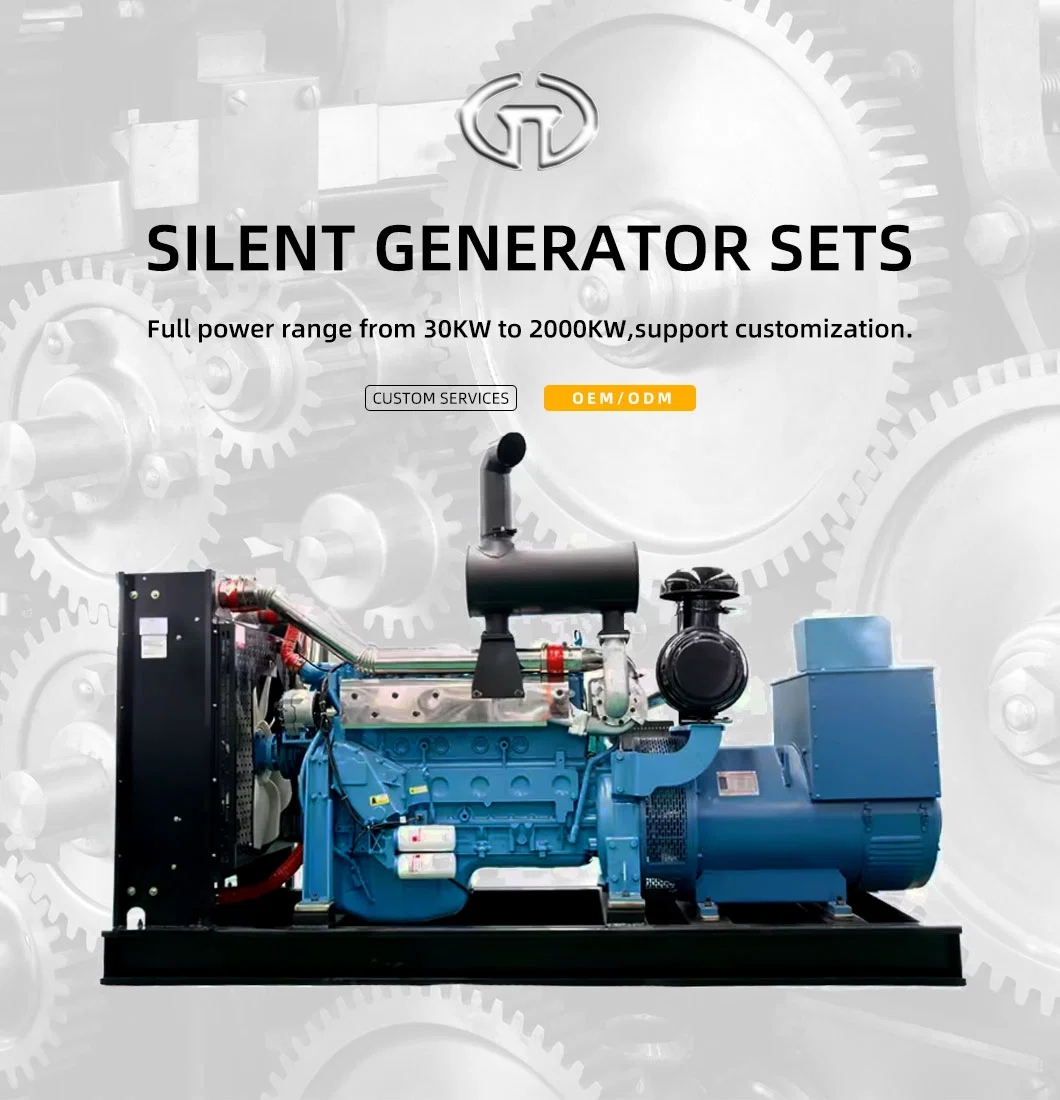Introduction
In today's modern world, where electricity plays a crucial role in powering our homes, businesses, and industries, the need for efficient load management solutions has become more important than ever. Diesel generators have long been a popular choice for providing backup power during outages or serving as the primary source of electricity in remote locations where grid power is unreliable or unavailable. This article will delve into the use of diesel generators for load management, exploring their benefits, applications, and best practices for optimal performance.
Understanding Diesel Generators
Diesel generators are a type of internal combustion engine that converts diesel fuel into mechanical energy, which is then converted into electrical energy through an alternator. These generators are widely used for a variety of applications, ranging from small residential units to large industrial systems capable of powering entire facilities.
One of the key advantages of diesel generators is their fuel efficiency and reliability. Diesel fuel is readily available and has a higher energy density compared to gasoline, making diesel generators more efficient in terms of power generation. Additionally, diesel engines are known for their durability and longevity, requiring less maintenance compared to other types of engines.
Benefits of Diesel Generators for Load Management
1. Reliable Backup Power: Diesel generators are known for their reliability and robust performance, making them an ideal choice for backup power solutions. In the event of a grid outage or other power disruption, diesel generators can quickly kick in to provide continuous power supply, ensuring that critical systems and equipment remain operational.
2. Cost-Effective Operation: While the initial investment in a diesel generator may be higher compared to other types of generators, diesel generators offer long-term cost savings due to their fuel efficiency and low maintenance requirements. Diesel fuel is also typically more affordable than gasoline or propane, further reducing operating costs.
3. Scalability: Diesel generators are available in a wide range of sizes and power capacities, making them highly versatile for different load management requirements. Whether you need a small generator for residential backup power or a large generator for industrial applications, diesel generators can be tailored to meet specific power needs.
4. Quick Start-Up Time: Diesel generators have a fast start-up time, allowing them to provide power within seconds of a grid outage. This rapid response time is essential for maintaining continuity in critical operations and preventing downtime that could result in financial losses.
Applications of Diesel Generators for Load Management
1. Residential Backup Power: Diesel generators are commonly used in residential settings to provide backup power during outages. These generators can be connected to essential household appliances, such as refrigerators, lights, and heating systems, ensuring that residents remain comfortable and safe during power disruptions.
2. Commercial and Industrial Facilities: Diesel generators are widely used in commercial and industrial facilities to provide backup power and support load management strategies. These generators can power essential equipment, machinery, and systems, allowing businesses to continue operations without interruption.
3. Remote Locations: In remote areas where access to grid power is limited or unreliable, diesel generators serve as the primary source of electricity. These generators are essential for powering off-grid facilities, such as telecommunications towers, mining sites, and agricultural operations.
4. Events and Temporary Power Solutions: Diesel generators are often deployed for temporary power needs, such as outdoor events, construction sites, and emergency response operations. These generators can be easily transported and set up to provide reliable power in remote or temporary locations.
Best Practices for Using Diesel Generators for Load Management
1. Regular Maintenance: To ensure optimal performance and longevity, diesel generators require regular maintenance and servicing. This includes checking and changing the oil, fuel filters, air filters, and spark plugs, as well as inspecting the generator for any signs of wear or damage.

2. Fuel Quality: Diesel generators are sensitive to fuel quality, and using contaminated or degraded fuel can lead to engine problems and reduced efficiency. It is essential to use clean, high-quality diesel fuel and store it properly to prevent contamination.
3. 150kw diesel generator for construction equipment : Periodic load testing is important to verify the generator's capacity and performance under varying loads. This helps identify any potential issues or weaknesses in the system and ensures that the generator can handle the required power demands.
4. Remote Monitoring: Implementing remote monitoring systems allows for real-time tracking of the generator's performance, fuel levels, and operating parameters. This enables proactive maintenance and troubleshooting, reducing the risk of unexpected failures or downtime.
5. Compliance with Regulations: When installing and operating diesel generators, it is crucial to comply with local regulations and environmental standards. This includes proper installation, emission control measures, and safe handling of fuel to minimize environmental impact.
Conclusion
Diesel generators are a versatile and reliable solution for load management, offering a range of benefits for residential, commercial, and industrial applications. By understanding the advantages of diesel generators, identifying their key applications, and following best practices for operation and maintenance, users can maximize the performance and efficiency of these power systems. Whether used as backup power sources or primary electricity providers in remote locations, diesel generators play a vital role in ensuring continuous and reliable power supply in today's dynamic energy landscape.
